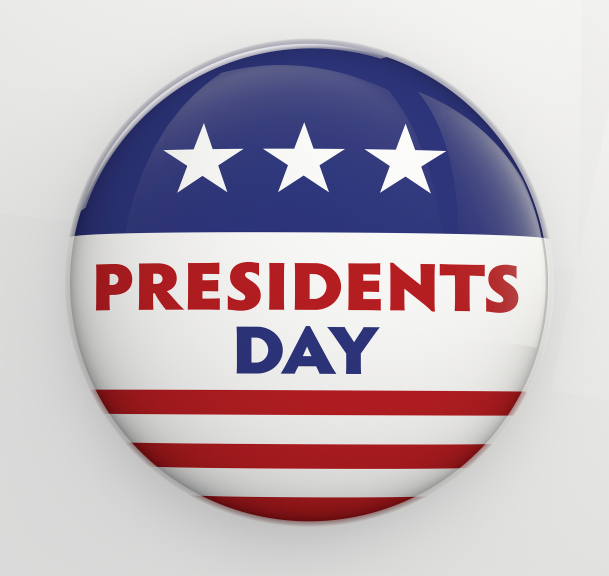
Presidents Day (also referred to as Presidents’ Day) has its roots in one of the oldest American holiday observances: George Washington’s Birthday.
In 1796, the final year of George Washington’s adminstration, Americans chose to honor their beloved president by celebrating his birthday in all thirteen states. They did not all mark the same day, however. In the year of 1731 when Washington was born, the colonies had used a Julian calendar. According to that calendar, Washington was born on February 11, 1731. Some two decades later, however, Britain and her colonies adopted the Gregorian calendar. This new calendar moved dates 11 days forward. Thus, under the Gregorian calendar, Washington’s birthday fell on February 22.
By the early 1800s, Washington’s Birthday had become a common observance, but an official date still had not been adopted. Some towns observed February 11, while others set aside February 22 to honor America’s Founding Father. Finally, in 1879,Congress declared Washington’s Birthday a federal holiday. The legislation that made Washington’s Birthday a national holiday also stipulated that it was to be observed on February 22, the anniversary of his birth according to the calendar now in use.
Washington’s Birthday continued to be observed on February 22 throughout much of the 20th century. Then, in 1968, Congress passed the Monday Holiday Act. This act moved certain federal holidays from fixed dates to the Monday following those dates in order to create more three-day weekends. Under the Monday Holiday Act, the official observance of Washington’s Birthday was moved to the third Monday of February. The change began with the 1971 calendar and continues to this day.
So how did Washington’s Birthday come to be known as Presidents Day?
Washington shared the month of February with another notable U.S. President, Abraham Lincoln. Following Lincoln’s 1865 assassination, many chose to observe Lincoln’s birthday — February 12th — as well as Washington’s. In the years to come, a number of states made Lincoln’s birthday a state holiday. Unlike Washington’s birthday, however, Lincoln’s birthday never became a federal holiday.
Urban legend claims that at the time the observance of Washington’s Birthday was moved to the third Monday of February, then-President Richard Nixon hoped to consolidate observances of both Lincoln’s and Washington’s birthdays into a single federal holiday. According to legend, Nixon issued a presidential proclamation dubbing the third Monday of February “Presidents Day” in honor of all U.S. Presidents.
In fact, Nixon
issued an executive order on February 11, 1971, proclaiming the third Monday of February a holiday. That order, however, referred to the holiday as nothing other than Washington’s Birthday. Claims that Nixon had changed the holiday to the more generic Presidents Day apparently stemmed from an inaccurate newspaper account.
Nonetheless, in the final decades of the 20th century, an increasing number of people embraced the term “Presidents Day.” Some states have even adopted Presidents Day as a state holiday in lieu of Washington’s Birthday. Still, the federal holiday on the third Monday of February legally remains “Washington’s Birthday” to this day.
